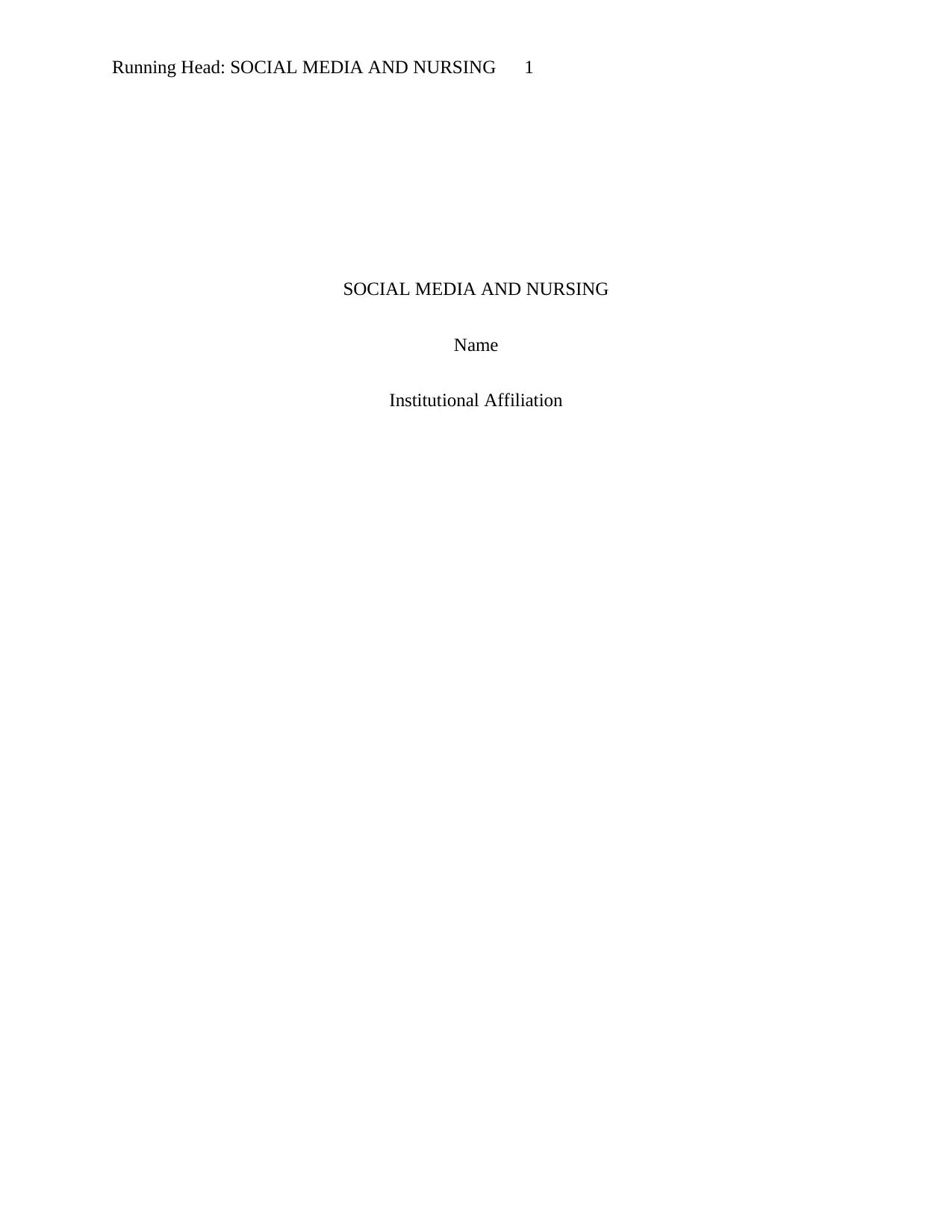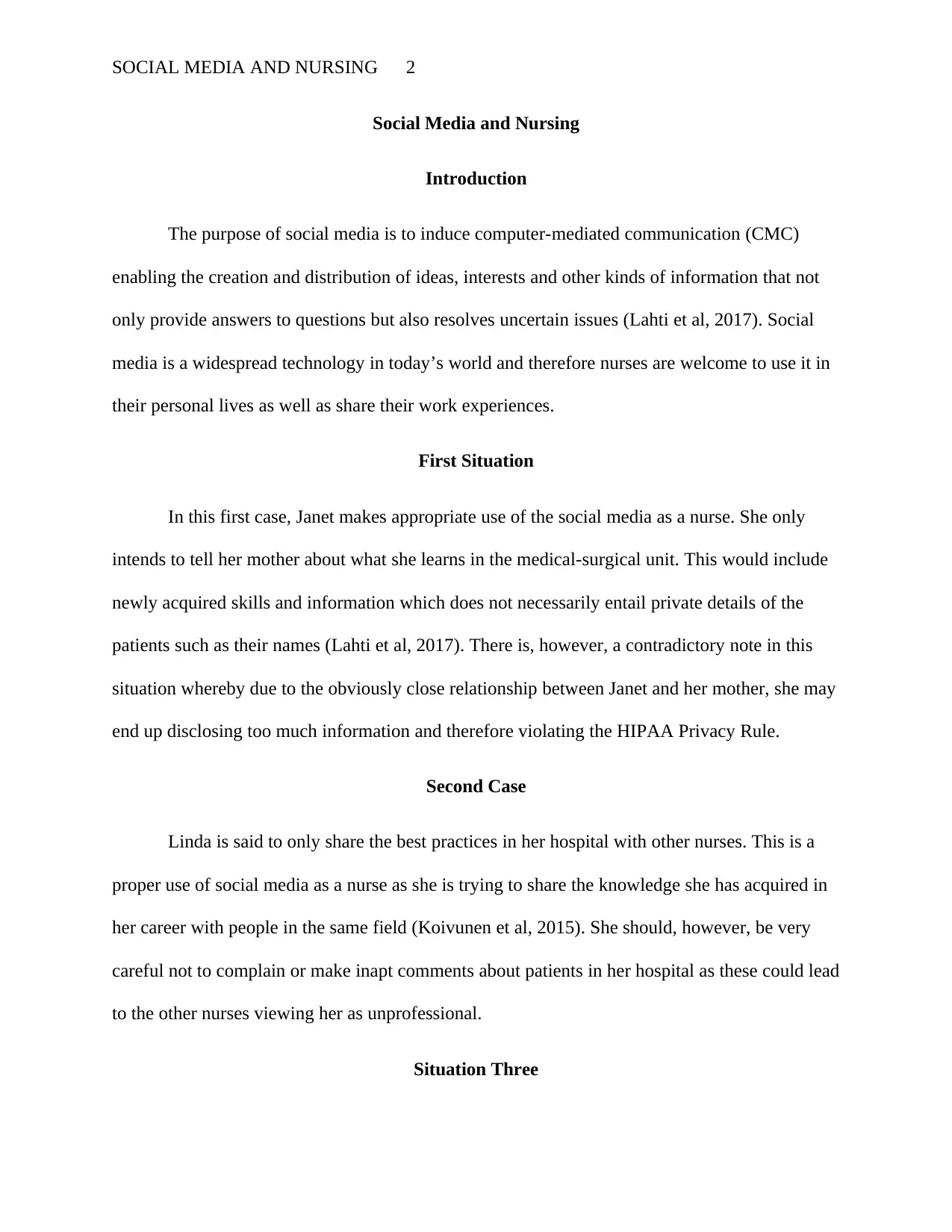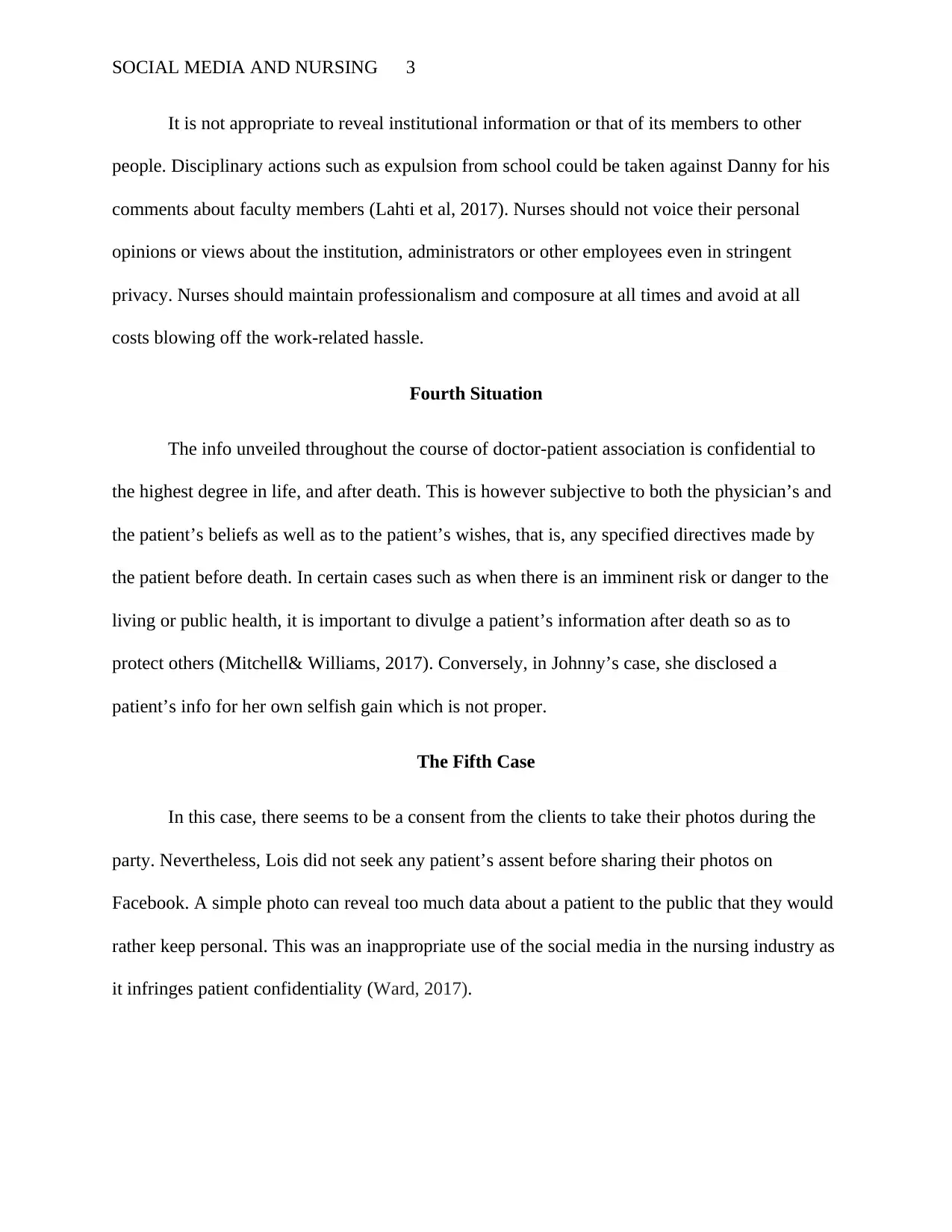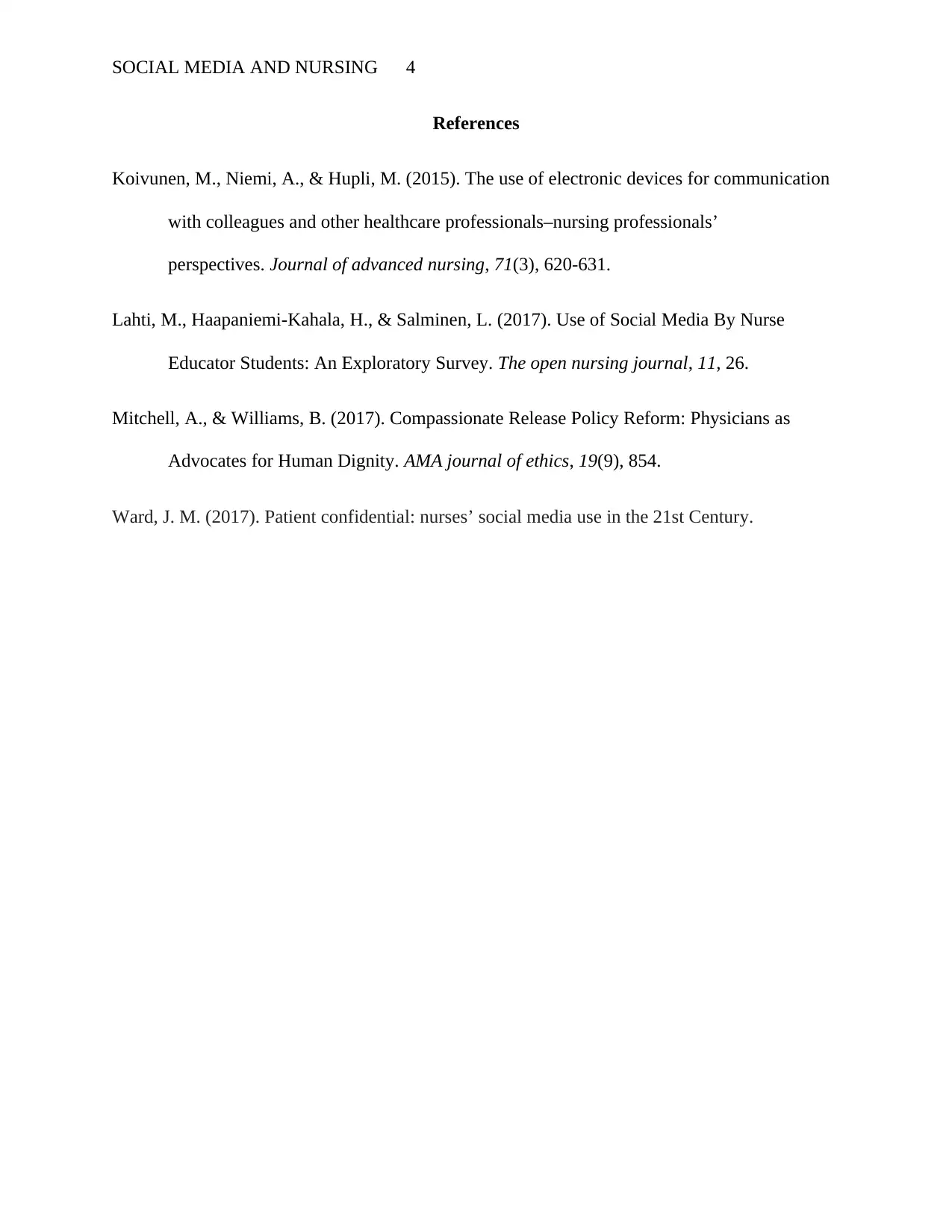Ethical Analysis of Social Media Use in Nursing: Cases & HIPAA Rules
VerifiedAdded on 2023/06/11
|4
|757
|434
Essay
AI Summary
This essay explores the ethical considerations surrounding the use of social media by nurses and nursing students, particularly in relation to patient confidentiality and HIPAA privacy laws. It analyzes five different scenarios, each presenting a unique situation where a nurse or student interacts with social media. The analysis determines whether each situation represents an appropriate use of social media within the nursing profession, providing a rationale for each decision based on ethical principles and legal requirements. The essay references relevant literature to support its arguments, emphasizing the importance of maintaining professionalism and protecting patient information in the digital age. The scenarios cover topics such as sharing experiences, discussing best practices, expressing opinions about faculty, disclosing patient information, and posting photos on social media, highlighting the complexities and potential pitfalls of social media use in nursing. Desklib provides a platform to access similar solved assignments and study resources.
1 out of 4










![[object Object]](/_next/static/media/star-bottom.7253800d.svg)